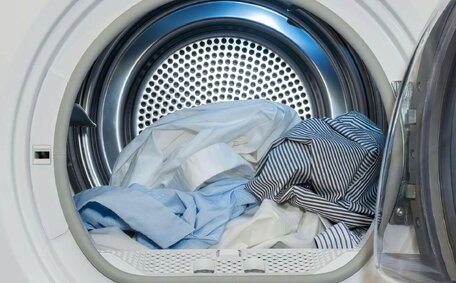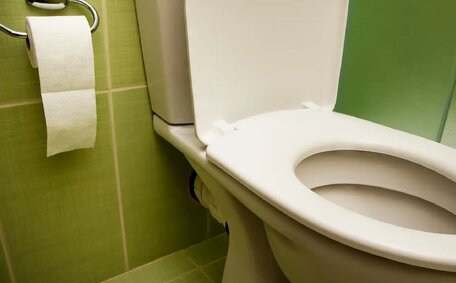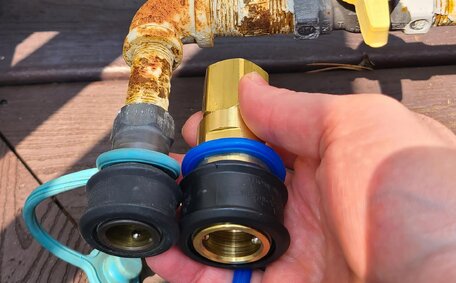Introduction to Gas vs Electric Heating
Deciding between gas and electric heating systems in Ryde, Sydney, involves comparing costs, efficiency, environmental impact, and property suitability.
This guide aids homeowners in comparing gas and electric heating to determine the more cost-effective and suitable option for their circumstances. We’ll cover factors like:
- Initial purchase and installation costs
- Ongoing running and maintenance costs
- Efficiency and heat output potential
- Available rebates and incentives
- Environmental credentials
- Suitability for different home types
Due to fluctuating gas prices in NSW, the choice between gas and electric heating can be complex. This guide demystifies the complexities, helping you assess each heating system’s pros and cons.
Upfront System Costs: Purchase and Installation
When purchasing a new heating system for your home, the upfront costs can vary significantly between gas and electric options.
Gas heating systems like ducted or hydronic units typically cost $5,000 - $15,000 installed. This price variation reflects the size and output of the unit, its energy efficiency rating, brand, and installation complexity. Homeowners may also need to pay additional costs for gas line connections if considering storage heaters during installation.
Electric heating systems can also span a wide price range, but are often cheaper upfront. For example, a basic electric split system may cost $2,000 - $4,000 installed, featuring heat pump hot water technology, while a top-of-the-range model could be $8,000 or more. As with gas systems, the price reflects diverse factors such as size, efficiency rating and difficulty of installation, Plus, you’ll need to factor in the continuing costs of electricity.
Consider obtaining multiple quotes tailored to your home when evaluating the purchase costs of gas vs electric heating. Expert advice ensures you select a properly-sized system to avoid overspending or underspending.
Installation Costs for New Home Construction
Installation costs are a key factor in determining whether gas or electric heating provides better long-term value for new homes in Ryde.
Installing ductwork and water heaters for gas central heating typically costs $2,500 - $4,500, depending on the home’s size and layout. There may be additional costs for the natural gas connection to the mains lines. Assuming no complications, homeowners using gas over electric appliances may budget around $6,000 - $8,000 for installation of a gas heating system in a new single-story home.
In comparison, Installing a electric split system, which may not be as eco-friendly as a solar hot water alternative, can cost as little as $500 - $1,500 for a single room. A ducted electric storage heater system, which can transform electric into gas energy powering your whole home heating, might cost $4,000 - $8,000 installed, on par with gas.
Although installation costs are similar, electric systems avoid the substantial fees associated with gas line connections.
For new constructions, balance energy installation costs with projected energy expenses in your area, as the running costs of the two options can differ significantly.
Installation Costs for Retrofits
Retrofitting a heating system into an existing Ryde home presents installation cost challenges.
If switching to gas central heating, homeowners may need to pay connection fees to tap into gas mains lines. The charge for this can range from $2,000 to $5,000, based on how close the home is to current infrastructure. Physical installation of the gas system will likely cost a further $5,000 - $10,000 for ductwork modifications, unit fittings, etc.
For electric heating system retrofits, which don’t require a gas boiler, upgrades to circuit boards and electrical wiring can tally $1,000 - $3,000 if your home’s existing infrastructure can’t handle additional load. Installation of the unit itself ranges from $500 - $2,000 for a split system, up to $8,000+ for an extensive ducted system when switching gas.
Installation of energy-efficient options can bring savings from lower operating costs. Additionally, consider the age of your home and potential disruption during retrofitting.
Operating Costs: Energy Usage Over Time
When assessing ongoing operating costs, energy usage and efficiency are crucial for both gas and electric heating systems.
In the Ryde region, natural gas currently costs around 15-20 cents per MJ for residential customers. The average home utilises less gas over the year, gas consumption, at 20-40MJ per square metre, is generally lower compared to electricity-reliant homes. So for a 150m2 home, annual costs for heating with electricity gas might tally $450 - $1,200.
Electricity averages 30 cents per kWh in Ryde. Running a ducted heating system uses about 1.5kWh per square metre per hour during day and night, shaping the cost per square metre into significant energy savings. For a 150m2 home, this equates to an annual cost of $675 to $1,350.
So electricity, while potentially cheaper to run with the right equipment, still works out being 25-50% more expensive than gas hot options annually, depending on unit efficiency ratings. However, the efficiency of gas may not stand up to new electric heat pump systems with 400-600% efficiency, utilising ambient air, when considering running costs. This makes their running costs competitive with traditional heat vs gas sources.
While gas heating is often seen as more affordable than electric, it also demands less maintenance than electric systems. But upgrading to more efficient units like modern gas boilers can reduce the overall gas cost per unit of energy, potentially paying off handsomely in savings.
Comparing Efficiency of Gas vs Electric Heaters
What method do we use to assess the efficiency of heating systems? The coefficient of performance (COP) is vital as it measures heat output relative to energy input.
Standard gas heaters, integral to gas hot water systems running efficiently, have a COP around 0.9. This means for every $1 of gas consumed, around 90c worth of heat is produced. The rest is lost energy through exhaust gases or heat leakage.
In contrast, air source electric heat pumps can reach a COP of 3-4, functioning as efficient alternatives to gas heating. For every $1 of electricity input, $3-$4 of heat is produced by leveraging outside air. This makes the running costs for efficient electric systems comparable, or in some cases, cheaper than gas, rather than being uniformly more expensive.
The highest efficiency electric options, eclipsing most types of gas heating, are ground source heat pumps with COPs over 4.5. Though they require excavation to install, the long term savings from lower energy bills can outweigh the higher upfront costs.
Comparing COP ratings can help you determine potential operating costs when selecting heating systems. Upgrading ageing gas furnaces to newer condensing models (COP 1.1) or installing ducted heat pumps (COP 3.5+) can pay dividends through energy savings over time.
Available Rebates and Incentives
When installing a new energy-efficient hot water heat system in your Ryde home, various rebates and incentives are available to help offset upfront purchase costs:
- Discover how much more the NSW government currently offers, like a $1,000 rebate for installing a reverse cycle air source heat pump under its Empowering Homes programme. Additional rebates up to $3,000 may be available for making your heating more cost-effective by switching from gas to electrical appliances.
- The federal government’s Technology Investment Boost provides a tax deduction up to $20,000 for installing approved energy saving assets like heat pumps or solar panels.
- Energy providers like Origin offer point-of-sale discounts on high efficiency gas heaters and heat pump systems, through which homeowners can save. Discounts range from $500 to $1,500.
- Interest-free finance deals may also be available when installing qualified heating systems through energy providers or specialists like us.
When weighing up gas vs electric heating options, Enquire about current rebates for gas appliances, finance offers, and sales discounts in your area. The long-term savings on energy bills, especially when considering both heating cooling systems, can be significant with the right package.
Environmental Impact Considerations
When weighing up gas vs electric heating systems, it’s important to consider the environmental impact of each option.
Gas heating produces direct greenhouse gas emissions from burning fossil fuels. An average home in Sydney with gas heating contributes between 1.5 to 3 tonnes of carbon dioxide annually. There are also concerns around gas leaks contributing to climate change.
Conversely, electric systems that leverage renewable energy can reduce reliance on natural gas, offering enhanced functionality over non-solar integrated setups. Pairing efficient electric hot water heating with rooftop solar or purchasing GreenPower energy allows households to reduce their carbon footprint from home energy use.
Heat pumps also offer cost savings in operation by using electricity more effectively, generating 2-3 times more heat per energy unit compared to gas heaters. This equates to lower emissions.
If your electricity mainly comes from fossil fuel-generated grid power, the ecological benefits of electric systems are reduced. In NSW around 80% of grid power remains coal-fired.
When weighing up heating system carbon footprints, consider:
- Your electricity provider’s energy mix
- Installing renewables like solar PV
- Purchasing carbon offsets for gas
- Upgrading ageing heaters to efficient models
Opting for greener technologies or energy sources helps households reduce their environmental impact. Seeking expert advice can prevent choosing costlier low-emission heating options.
Maintenance Requirements
To keep heating systems running efficiently and safely, both gas and electric options require regular maintenance:
- Gas heaters need annual servicing to check pipes for leaks, inspect the burners, clean filters and ensure proper operation. Cost is typically $150-$300.
- Electric heat pumps and split systems require filter cleaning every 6 months and annual check-ups to ensure refrigerant levels, air flow and electricals are working properly. Budget $100-$250 per year.
One benefit of electric systems is the longevity, with parts like compressors and fans seamlessly integrating into your heating system and lasting 10-15 years. Gas heaters often require replacing components like burners or heat exchangers after 8-12 years.
Every gas appliance in NSW also legally requires an inspection every 5 years by licenced plumbers to identify any expired, faulty or high-risk equipment. Repairs or replacements are compulsory for compliance.
When weighing up heating system maintenance costs, electric heat pumps tend to require less upkeep over 10+ years. But ensure either system is serviced annually for optimal safety, efficiency and longevity.
Best Heating Solutions for Different Home Types
When deciding on home heating in the Ryde area, the best system for your property depends on factors like size, layout and insulation.
Larger, older homes with insufficient insulation may find that high-efficiency gas ducted systems or energy-intensive heating solutions like induction stoves effectively meet their heating demands. Homes over 150m2 will benefit from gas ductwork distributing warmth to heat your home evenly. Ensure adequate insulation to contain costs more than could be expected with inadequate insulation.
Newly built townhouses, including those relying on cooking hot water preferences with gas ovens over electric ovens, feature improved insulation with less heating load. Electric split cycle systems offering zone control would be an efficient, affordable option. Concentrate heating to areas and times where it is needed most.
Smaller apartments under 100m2 lacking a storage tank for complete hot water systems may find portable electric panel heaters an appropriate choice. Without existing gas lines, these plug-in heaters provide affordable supplementary warmth.
Ultimately, the most cost-effective and energy-efficient heating and water systems depend on your home’s size, layout, and construction. Consult experts to identify which appliances can suit the right system tailored to your property’s requirements.
Pros and Cons of Gas vs Electric Heating
When deciding between gas and electric home heating systems, both options have unique advantages and downsides to weigh up:
Gas heating pros:
- Lower operating costs in most regions
- More powerful heat output potential
- Long lifespan of around 12-15 years
- Consistent temperatures with central heating
- No expensive electricity upgrades required
Gas heating cons:
- Higher greenhouse emissions
- Higher upfront purchase costs
- Need for annual servicing/safety checks
- Depletion of finite fossil fuel resources
- Leaks, faults and explosions require urgent repairs
Electric heating pros:
- Lower greenhouse emissions with renewable energy
- Zone heating possible with split systems
- Heat pumps operate at over 300% efficiency
- Safety features and auto shut-offs prevent issues
- Long component lifespans of 10-15 years
Electric heating cons:
- Higher energy rates make running costs expensive
- Upgrades to wiring may be required in retrofits
- Portable units only heat the immediate vicinity
- Efficiency reduced in extremely hot or cold weather
- variable output depending on the electricity grid’s daily supply
Ultimately, deciding which one, gas vs electric, requires balancing upfront system costs against projected energy prices and usage patterns in your home over 5-15 years. Consult experts to determine the best heating solution tailored to your household and how to save money on your bills.
Conclusion and Key Takeaways
When deciding between gas and electric heating in the Ryde area, there are many factors for homeowners to weigh up.
Often, gas proves less costly than electric options, presenting lower cumulative operating expenses. But the gap is narrowing as electricity prices fall and efficient options like solar hot air source heat pumps become more affordable. Gas electricity systems also have higher upfront installation costs in most homes.
Electric solutions, akin to an electric vehicle paradigm, allow pairing with solar panels to move off gas for reduced emissions. And modern heat pumps can operate more efficiently than even the best gas heaters, significantly influencing how much energy is saved. However, gas heating provides warmth tailored to the specific needs of your house on those frigid winter nights.
Additional factors to consider include maintenance costs, rebates, safety, and alignment with your lifestyle and environmental considerations.
There is no universally "best" option for every home. The most cost and energy effective heating solution depends on:
- House size, layout and existing infrastructure
- Regional climate conditions and projected energy pricing
- Efficiency ratings of the systems being compared
- Individual household preferences and values
To find out the right hot water and heating system for your home, contact the helpful team at Ryde Plumbing today to discuss your needs. With over 25 years of experience, we provide personalised advice on cost-effective, gas electric solutions and sustainable heating tailored to your property.
For custom quotes or to participate in a consultation regarding your gas heating needs, call us on 1300 349 338 or email jobs@rydeplumbingservices.com.au.






